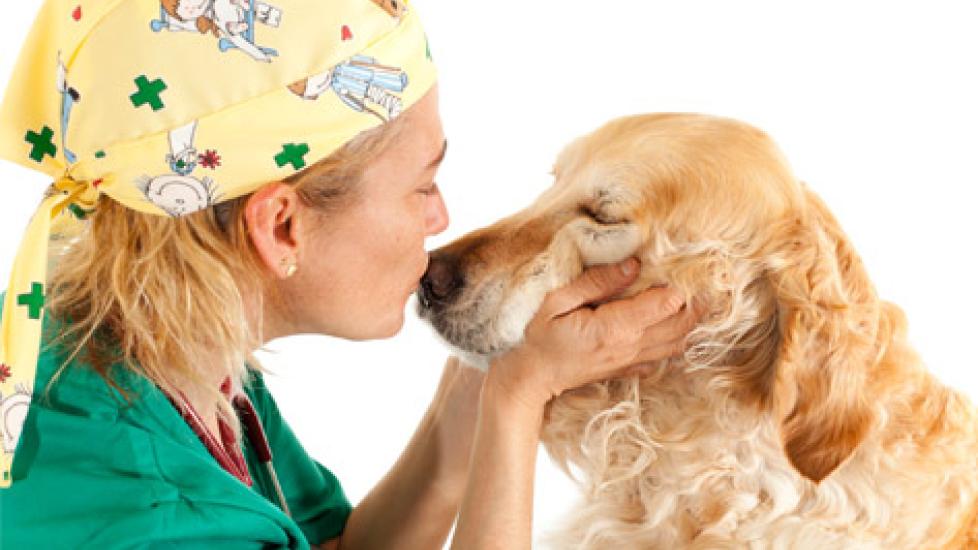5 Senior Dog Diseases You Need to Know
Common Health Problems in Senior Dogs
By Jessica Vogelsang, DVM
Life passes quickly, especially when you’re a dog. The frolicking puppy brought home from the humane society just a few short years ago matures into a mellow senior in what seems like the blink of an eye. Fortunately, as veterinary medicine has improved, so has our ability to identify and manage some of the most common health conditions associated with aging in dogs.
As veterinary medicine has improved, so has our ability to identify and manage health conditions. Here are 5 senior dog diseases you need to know.
When is my Dog a 'Senior'?
Although the common wisdom tells us a dog’s age times 7 equals their equivalent age in human years, the truth is dogs age at different rates depending on their size. Giant breeds like Great Danes may have a life expectancy of less than 10 years, while an eight pound Chihuahua may live past 18. A more specific rule of thumb is that a dog can be considered a senior during the last quarter (25%) of his or her expected life span.
1. Osteoarthritis
Joint disease goes hand in hand with aging, as the cartilage that protects joint surfaces wears down with time. Although this process cannot be reversed, owners have plenty of tools at their disposal to reduce the impact of aging on joints and arthritis in dogs.
First, make sure your pet is at a healthy weight. Overweight dogs carry significantly heavier loads on their joints. This has an effect on dogs of all breeds, but is most pronounced in large breed dogs who may already have a genetic disposition to conditions such as hip dysplasia. Second, make sure your dog receives regular examinations to catch the early signs of joint disease. Familiarize with the signs of joint disease, too — reluctance to climb stairs, stiffness especially in the morning, and limping to name a few. Last but not least, ask your veterinarian about therapeutic dog food. Some diets are formulated specifically to improve mobility and joint health.
2. Dental Disease
One of the most commonly diagnosed conditions in dogs, dental disease occurs in all breeds and sizes of canines. Left untreated, periodontal disease can lead to pain, tooth loss, and bacteria in the bloodstream that can damage internal organs.
Home care such as tooth brushing and dental treats can help reduce tartar on the teeth, as can specialized foods meant to promote dental health. Once dental disease has developed, however, a fully anesthetized dental cleaning at the veterinary clinic in needed. Start early, before severe periodontal disease develops.
3. Obesity
More than half the dogs in the United States are classified as overweight or obese, and many owners don’t even realize it. Even worse, overweight dogs are susceptible to a litany of secondary problems such as joint disease, diabetes, and respiratory illness.
Exercise and calorie control are the keys to managing a pet’s weight. Senior dogs are often less active than their younger counterparts and have different caloric needs. Diets designed for seniors can help provide nutrients in the proper balance, often with different ratios of fat and protein than you would find in a standard adult dog food. Regular gentle exercise is beneficial even for dogs with health issues. Consult with your veterinarian to come up with a diet and exercise plan that is right for your pet.
4. Hypothyroidism
Overweight dogs that are following a vet-approved weight loss plan with little to no success may be suffering from hypothyroidism, a common condition in dogs that results in a sluggish metabolism. Fortunately, hypothyroidism can be diagnosed with a simple blood test and responds readily to medication.
5. Cancer
Sadly, dogs are susceptible to many of the same cancers seen in humans. Bone cancer, lymphoma, and melanoma are just a few of the neoplasms commonly diagnosed in dogs. Although there is a strong genetic component in some dog breeds like Golden Retrievers and Boxers, cancer can develop spontaneously in any breed. Early detection and diagnosis is the key to surviving dog cancer, so don’t skip those annual veterinary exams.
MORE TO EXPLORE
How to Recognize Signs of Arthritis in Pets
Overweight Pets: Addressing the Epidemic
How to Care for Senior Pets
